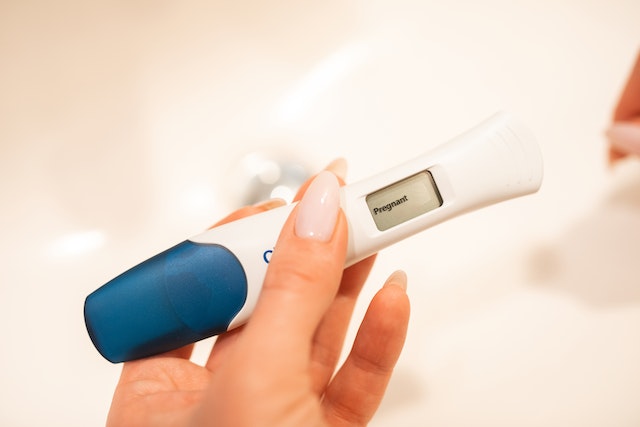Pregnancy has never been easy for a soon-to-be mom. The tension begins from family planning to being pregnant. This fear also envelopes childbirth in some mothers’ minds. This fear is called Tokophobia where a woman feels to have a baby but is too scared of birth, preventing her from getting pregnant or even opting for a cesarean, in case they can’t deny pregnancy. In this blog, we will discuss tokophobia in detail to help you understand your fear of childbirth in simple language.
Tokophobia: Scared of Childbirth
This phobia is related to over-anxious women over the topic of childbirth and pregnancy. The women who experience this phobia will neglect giving birth or becoming pregnant altogether. If by any chance they are unable to terminate their pregnancy, they’ll shift for the C-section, then going for the vaginal birth.
These women don’t dislike kids but, the pathological fear stops them. This phobia can be observed in new mothers and even in moms who experienced traumatic birth incidents.
Related Topic: When is the right time for a second baby?
Some men even experience Tokophobia, where they fear extremely about the safety, and health of their partner, and the baby.
Symptoms:
Tokophobia comes under the category of specific phobia, further categorised under anxiety disorder where excessive and irrational fear is observed over certain situations or objects.
After knowing about what Tokophobia is, now let’s figure the symptoms of this phobia.
- Panic Attacks are quite common.
- Sleep disturbances can occur frequently.
- Nightmares can worsen the situation.
- The woman facing this phobia will often have an avoiding behavior for the situation.
- Depression because of the overwhelming anxiety.
- Extreme feelings of fear at the thought of birth and pregnancy.
- The woman facing the phobia will deny vaginal birth and will insist on a C-section.
- The woman filled with a phobia will severely fear defects in birth, maternal death, or stillbirth even before all this happens.
You may like: Whose advice should I trust for my newborn?
Types:
To understand Tokophobia a little better, let’s first figure out its types. Tokophobia has two different types:
-
Primary Tokophobia
This type of phobia is an experience by women who haven’t yet experienced this birth process. It can begin from the early age of adolescents or even if they are currently pregnant. It is most common in raped or sexually assaulted girls. Sometimes medical exams performed during pregnancy or childbirth can often lead to original trauma flashbacks.
-
Secondary Tokophobia
This type of phobia is an experience by women who had traumatic birth past experiences. It is experienced by women who had miscarriages, unsuccessful fertility treatments, termination of pregnancy, and stillbirth. In some cases, women having no past traumatic experiences can also face it.
Factors:
The contributing factors that can lead to scaring regarding childbirth and pregnancy are:
- Fear of Pain.
- Fear of death through miscarriage or any complications related to birth.
- No trust in the medical practitioners.
- Faced child abuse or have a history of depression and anxiety.
- Reading or hearing distressing stories or news over social media related to childbirth.
- Sometimes, imbalance in hormones even influences anxiety levels making them out of control or hard to handle.
- Fear of losing control or lack of privacy.
- Sometimes psychological factors also operate in, for example, getting pregnant in adolescence, lacking the social support required, or getting impoverished.
Related Topic: 10 moments while changing a diaper
Tips To Manage Childbirth Fears
Don’t stress about knowing you have a particular type of phobia. Try to follow the below-listed points to make yourself better.
- Remember, fear increases even more if you keep it caged in you. Talk to people about your fear without the feeling of judgment and ask suggestions to conquer it. You aren’t the first one to experience there, are many on the list. Don’t suffocate yourself with those constant negative thoughts. Breathe in the fresh air with the people who love you and care for you.
- Talk to your doctor and the team responsible for the childbirth. Check on everything and clearly state your fears so that they can work on reducing your anxious feelings by providing you with a secure environment.
- Don’t communicate with yourself in a negative tone. Get your gear and attend a yoga session to make you feel calm and composed. You can even go to a nearby birthing class. And, don’t forget to create a birth plan.
Follow these, and you will feel much better and strong to conquer your fear!
You may like:
10 substantial changes for new parents
Parenthood is one of the most beautiful yet exhausting phases of life. The changes that come with it are so unexpected that it is difficult to see them coming. One moment you were having a movie night with your partner. Next, you both are rushing to change your diaper. And after some time, you start taking it all in stride, be it your baby puking on you or crying in the middle of the night. Here are the top ten aspects of your life that would change when you become a parent. Read More:









